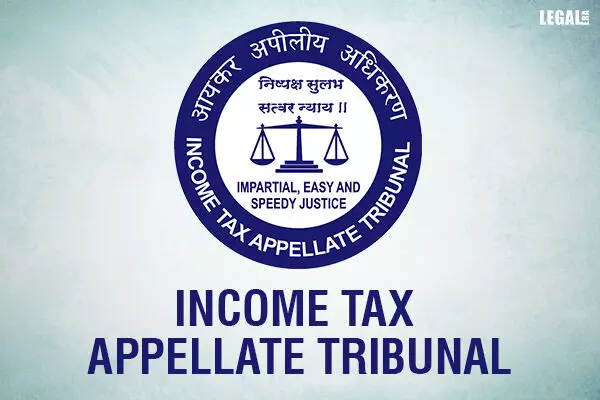- Home
- News
- Articles+
- Aerospace
- Artificial Intelligence
- Agriculture
- Alternate Dispute Resolution
- Arbitration & Mediation
- Banking and Finance
- Bankruptcy
- Book Review
- Bribery & Corruption
- Commercial Litigation
- Competition Law
- Conference Reports
- Consumer Products
- Contract
- Corporate Governance
- Corporate Law
- Covid-19
- Cryptocurrency
- Cybersecurity
- Data Protection
- Defence
- Digital Economy
- E-commerce
- Employment Law
- Energy and Natural Resources
- Entertainment and Sports Law
- Environmental Law
- Environmental, Social, and Governance
- Foreign Direct Investment
- Food and Beverage
- Gaming
- Health Care
- IBC Diaries
- In Focus
- Inclusion & Diversity
- Insurance Law
- Intellectual Property
- International Law
- IP & Tech Era
- Know the Law
- Labour Laws
- Law & Policy and Regulation
- Litigation
- Litigation Funding
- Manufacturing
- Mergers & Acquisitions
- NFTs
- Privacy
- Private Equity
- Project Finance
- Real Estate
- Risk and Compliance
- Student Corner
- Take On Board
- Tax
- Technology Media and Telecom
- Tributes
- Viewpoint
- Zoom In
- Law Firms
- In-House
- Rankings
- E-Magazine
- Legal Era TV
- Events
- Middle East
- Africa
- News
- Articles
- Aerospace
- Artificial Intelligence
- Agriculture
- Alternate Dispute Resolution
- Arbitration & Mediation
- Banking and Finance
- Bankruptcy
- Book Review
- Bribery & Corruption
- Commercial Litigation
- Competition Law
- Conference Reports
- Consumer Products
- Contract
- Corporate Governance
- Corporate Law
- Covid-19
- Cryptocurrency
- Cybersecurity
- Data Protection
- Defence
- Digital Economy
- E-commerce
- Employment Law
- Energy and Natural Resources
- Entertainment and Sports Law
- Environmental Law
- Environmental, Social, and Governance
- Foreign Direct Investment
- Food and Beverage
- Gaming
- Health Care
- IBC Diaries
- In Focus
- Inclusion & Diversity
- Insurance Law
- Intellectual Property
- International Law
- IP & Tech Era
- Know the Law
- Labour Laws
- Law & Policy and Regulation
- Litigation
- Litigation Funding
- Manufacturing
- Mergers & Acquisitions
- NFTs
- Privacy
- Private Equity
- Project Finance
- Real Estate
- Risk and Compliance
- Student Corner
- Take On Board
- Tax
- Technology Media and Telecom
- Tributes
- Viewpoint
- Zoom In
- Law Firms
- In-House
- Rankings
- E-Magazine
- Legal Era TV
- Events
- Middle East
- Africa
ITAT: Writing Off Bad Debts in Books of Accounts is Sufficient for Claiming Deduction

ITAT: Writing Off Bad Debts in Books of Accounts is Sufficient for Claiming Deduction
The Income Tax Appellate Tribunal (ITAT), Ahmedabad, by its division member bench comprising of T.R. Senthil Kumar (Judicial Member) and Waseem Ahmed (Accountant Member) has deleted the addition and held that any adjustment for bad and doubtful debts amounts to actual writing off the bad debts.
The brief background of the case is that the appellant/assessee- Integra Engineering India Ltd., (Formerly known as Schlafhorst Engineering (India) Ltd.) claimed to be in the business of manufacturing and selling textile machinery, spares, and job work. The assessee in the year under consideration had written off bad debts of Rs. 36,75,000 in the profit and loss account.
The assessee, likewise, had also written off the bad debts amounting to Rs. 69,33,446 in the computation of income by adjusting the provision for the bad debts created in the earlier year. Thus, the assessee had in effect claimed a deduction of Rs. 1,06,00,000 on account of bad debts.
However, the Assessing Officer (AO) had disallowed the same on the reasoning that the assessee had not placed on record the efforts made by it for the recovery of the alleged bad debts. The AO disallowed it and added it to the total income of the assessee.
The assessee contended that the adjustment of bad debts against the provision represents writing off the bad debts. Therefore, the Commissioner of Income Tax (Appeals) [CIT (A)], on the wrong assumption of facts has concluded that the bad debts were not actually written off.
The ITAT observed that, “any adjustment made by the assessee on account of the bad debts against the provisions created in the earlier year amounts to actual writing off the bad Debts in the books of accounts. Thus, the assessee cannot be denied the benefit for the bad debts merely on the reasoning that such bad debts were not claimed in the profit and loss account but adjusted against the provision of bad debts. Admittedly, the provision was created by the assessee in the earlier year out of the profit and loss account.”
Thus, any adjustment against such provision for bad and doubtful debts amounts to actual writing off the bad debts, opined the Tribunal.
Accordingly, it set aside the finding of the learned CIT(A) and directed the AO to delete the addition made.



